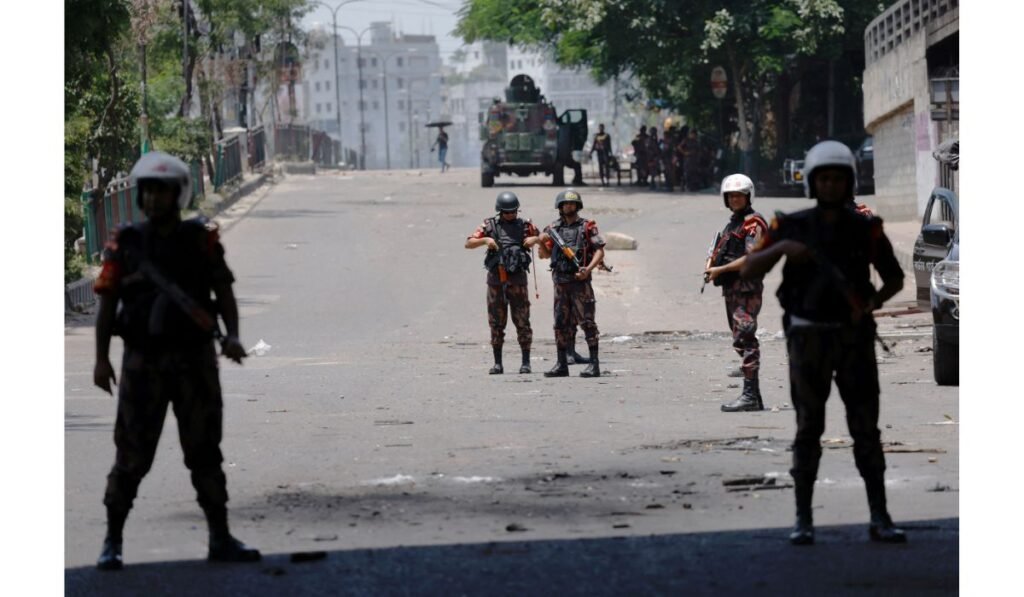DHAKA (Reuters) – Bangladesh soldiers patrolled Dhaka’s deserted streets on Saturday. They enforced a curfew to quell deadly Bangladesh student protests. The protests against government job quotas have killed over 100 people this week. #BangladeshStudentProtests
A suspension on internet and text message services has remained in place since Thursday, cutting off Bangladesh from the world as police cracked down on protests that have continued despite a ban on public gatherings.
The violent clashes have killed at least 105 people and injured thousands this week, according to data from hospitals across Bangladesh. The Dhaka Medical College Hospital received 27 dead bodies on Friday between 5 p.m. to 7 p.m.
The nationwide unrest began with student anger over new quotas for government jobs. Bangladesh student protests included 30% quotas for families of independence fighters.
That measure has opened old and sensitive political fault lines between those who fought for Bangladesh’s independence from Pakistan in 1971 and those accused of collaborating with Islamabad.
Over the past five days, police have fired tear gas and hurled sound grenades to scatter protesters during the nationwide unrest, as demonstrators clashed with security personnel, throwing bricks and setting fire to vehicles. #BangladeshStudentProtests
With the death toll climbing and police unable to contain the violent protests, Prime Minister Sheikh Hasina’s government on Friday imposed a national curfew and deployed the military.
The curfew will ease for two hours from 12 p.m. on Saturday to allow people to shop for supplies and complete other chores, TV channels reported.
The curfew will last until 10 a.m. on Sunday at which point the government will assess the situation and decide the next course of action, the reports added.








